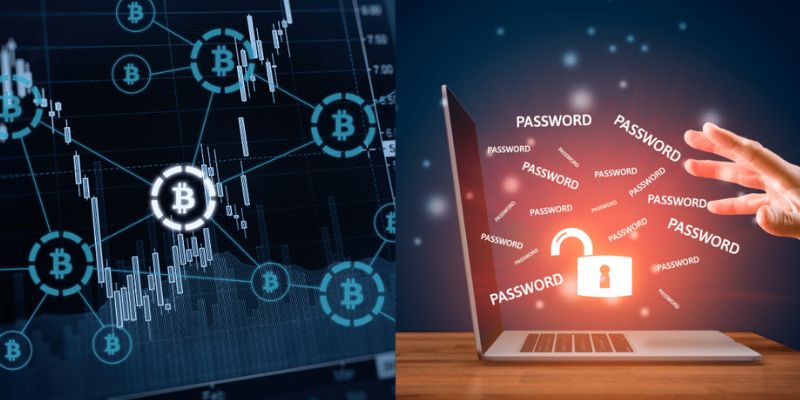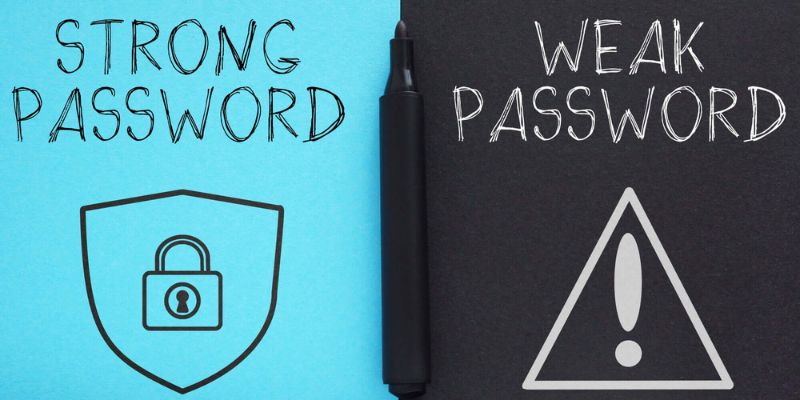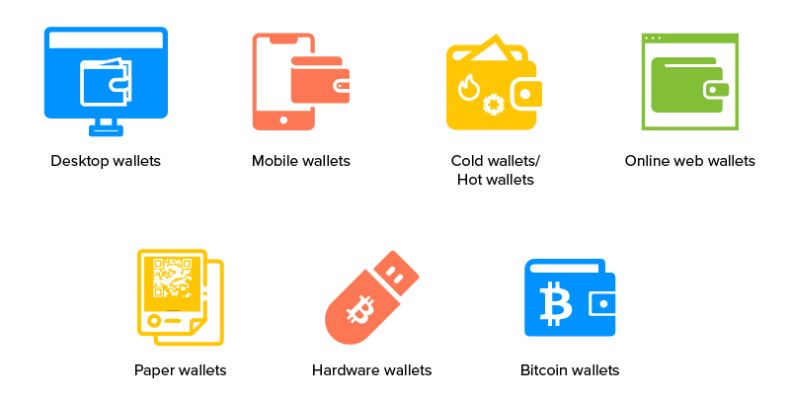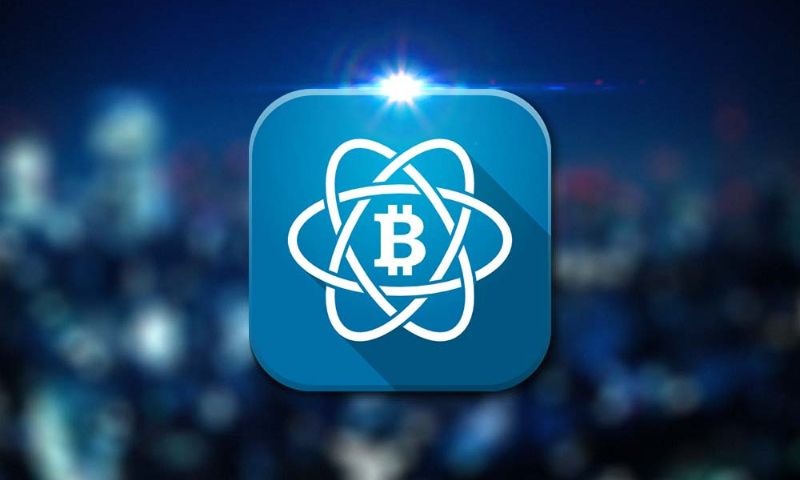In the world of digital currency, keeping your coins safe hinges on how to create a strong password for your crypto wallet. The wrong choice here is like leaving your digital vault unlocked in a crowded street – anyone could take a peek, or worse, empty it. Today, I’ve got the unbreakable secrets you need. We’ll crack the code on setting a password that’s not just a bunch of letters and numbers thrown together, but a fortress wall guarding your digital gold. Ready? Let’s make your crypto wallet as secure as it gets.
Understanding the Basics of Crypto Wallet Security
The Importance of Password Strength Guidelines
Creating a strong password for your crypto wallet is key. It’s like crafting an unbreakable lock to guard your digital gold—your crypto assets. Here are must-follow password strength guidelines to keep your treasure safe.
First things first, make your password long and complex. Aim for at least 12 characters. Mix in letters, numbers, and symbol like “@,” “#,” or “!” to make it extra tough to crack. Think of it as a secret code that only you can crack.
Next, avoid the usual stuff like “password123” or “qwerty.” Those are the first guesses of sneaky hackers. We want folks scratching their heads, not logging into our accounts!
Having a strong passphrase for your wallet also counts. It’s like a longer password but with a twist—it’s a phrase you can remember. Something like “BlueTacoSky$45!” works great.
And remember to change your password often. Regular updates keep these sneaky cyber thieves guessing.
Emphasizing Case Sensitivity and Symbols in Passwords
Let’s get into the nitty-gritty of case sensitivity and symbols. Case sensitivity means using both big and little letters. For example, “a” is not the same as “A”—think of them as two different secret agents in your password.
Adding symbols amps up password strength like Popeye’s spinach. Think about how a “!” can take a simple word and turn it into a strong password. For instance, “fish” could become “@F!5h.”
Always check your password with a strength meter. It gives you a score on how tough your password is. It’s like a game where higher scores mean better security.
What if remembering hard passwords isn’t your thing? Use a passphrase instead. It’s like making a little sentence that’s easy for you to remember but hard for others to guess.
For the best security, mix these tips with other tricks like two-factor authentication. It’s like having a secret handshake on top of a secret code.
And don’t jot down your passphrase or recovery phrases on a Post-it note. Instead, secure them in a safe place, far from prying eyes and sticky fingers.
We’ve covered a lot, folks! But these steps are your first defense line in securing those precious digital coins in the wild web. Remember, your crypto wallet’s safety hangs on your password’s strength—so make it robust and unyielding!
Advanced Password Creation Techniques for Wallets
Leveraging Password Generator Tools
Let’s dive into making a crypto wallet password. A good start uses password generator tools. These tools mix letters, numbers, and symbols. They create passwords tough to guess. Passwords like these make it hard for thieves to steal your coins.
When you use a generator, you get a random, strong password. It’s like a secret code, only you should know. Use generators from trusted sites to stay safe. They help you steer clear from easy-to-guess passwords. Avoid using things like your pet’s name or birthday.
Remember, each part of your password adds strength. Think of your password like a superhero. Each symbol, number, or odd letter makes it stronger. The more mixed up, the better.
The Role of Entropy in Crafting Passwords
Now, let’s talk about entropy. This is a fancy way for saying “randomness.” Good entropy in passwords means they have lots of surprise mix-ups. This makes them really hard to guess.
Think of a bag of chips. If you pick without looking, that’s random. Now, if the bag has all sorts of chips, even veggie chips, your pick is very unexpected. That’s high entropy. Your password should be like that bag. Full of surprises!
To get high entropy, throw in caps lock on some letters. Add numbers and symbols. The longer the password, the better. But make sure you can remember it. Or, write it down and keep it locked away.
Avoid common words or simple patterns. They can be broken into fast. It’s like leaving your bike unlocked. Make your password a puzzle that only you can solve.
Key Takeaways:
- Password generators are great for strong passwords.
- Aim for high entropy or randomness.
- Mix different types of characters for top security.
- Stay clear from passwords that are easy for others to guess.
Your coins are precious. Keep them safe with passwords that are like vaults. Only the right key opens it, and that key is your unbreakable password. Stay sharp and keep updating your password smarts. Your wallet will thank you.
Fortifying Access with Additional Security Layers
Multi-Factor and Biometric Authentication Implementation
Let’s beef up your crypto wallet security. You know that feeling when you add an extra lock on your door? It feels safer, right? That’s what multi-factor authentication (MFA) does for your wallet. With MFA, even if someone figures out your password, they can’t get in without another key. Think of it like your wallet asking for a secret handshake. It could be a code from your phone, your fingerprint, or even your face.
Now, why is this so cool? With biometric authentication, your unique body parts become keys. It’s way harder to copy your fingerprint than to guess a password! Hackers can’t just trick their way into your hard-earned crypto.
But, I hear you asking, how do I set this up? First, check your wallet app or device. Look for security settings. Follow the steps they give you to turn on MFA. If they offer biometric options, like a fingerprint or face ID, and you’re okay with that, go for it!
Regular Password and Hardware Wallet PIN Updates
Changing your password often is like changing the secret path to your hidden treasure. You don’t want anyone to follow your tracks, right? By updating your password, you keep those sneaky pirates guessing.
For your hardware wallet, your PIN is like a strong gate. It keeps out everyone but you. So, remember to change your PIN too. Not every day, of course, but now and then – maybe every few months or when you feel it’s needed. It’s best to pick a new PIN that’s nothing like the old one.
Now, here’s a power move: write down your PIN and password – but not in one place. Keep them apart, and hide them well! Not under your keyboard or in your wallet. Think of it like a treasure map. If someone finds a piece, they should not find the whole treasure.
In summary, more security layers mean fewer worries for you. Using MFA, especially with biometric checks, is like having a high-tech guard for your wallet. And mixing up your password and PIN keeps your defenses fresh and tough. Make these steps part of your routine, and you’ll be a pro at keeping your digital gold safe.
Best Practices for Managing and Storing Your Wallet Credentials
Utilizing Password Managers and Secure Storage Solutions
Choosing the right way to handle your crypto wallet’s info is a big deal. It’s like finding a secret spot for your most prized toy, where no one else can find it. A password manager is your best buddy here. It keeps your tough-to-crack passwords locked up tight.
First things first, let’s talk about creating that uncrackable password. Use a password generator to mix letters, numbers, and symbols. This mix is a big deal for password strength. Think of it as the special sauce that makes your password great. Also, change it up—don’t use words that are easy to guess, like your pet’s name. That’s too simple for sneaky hackers.
Now, let’s secure that password. A password manager stores all your passwords in one secure place. Only you can get into it, with one super-secure password that you have to remember. It’s like having a safe with a secret code that only you know.
Remember how I told you that password managers are your best pals? Well, they also help you to not use the same password everywhere. That’s a no-no. If a hacker gets it, they could break into all your stuff. A password manager keeps each password unique, and you don’t have to remember them all.
What about what’s behind your password, like your seed phrases and private keys? Those are the secret words that someone could use to take all your digital money. You need to keep them safe too.
Backup and Recovery Strategies for Seed Phrases and Private Keys
Your seed phrase is like a master key. It can unlock your crypto if you lose your main password. So, you have to keep it extra safe. Write it down on paper—yup, old-school style. Keep it out of sight, like in a locked drawer or a safe. Don’t just save it on your computer.
Having a backup is smart. Make a couple of copies of your seed phrase. Keep them in different places, like with family or in a safe deposit box. But, make sure they’re places and with people you trust. Like, a lot.
Here’s one more thing: don’t tell anyone your private keys or seed phrases. Not even your best friend. If someone else knows them, that’s a risky move for your digital coins.
Encrypting your wallet is another way to keep your crypto safe. It’s like putting a huge gate in front of your digital coins that only you can open.
Use cold storage for passwords and keys. That means keeping them offline, away from the internet. It’s safer because hackers can’t reach them without physical access.
Every now and then, check to make sure everything is still secure. You can do this by looking over your security choices and updating them if needed.
Keep your head up, stay smart, and use these tips to keep your digital dough under lock and key!
To wrap it up, we dug deep into keeping your crypto wallet safe. We started by covering why strong passwords are key and how case sensitivity and symbols make them tough to crack. We then moved on to password generators and how randomness, or entropy, makes a password secure.
We didn’t stop there. I showed you how extra steps like multi-factor and biometrics can shield your access further. Plus, I talked about the need to change your password and PIN regularly. Last, we reviewed smart ways to manage and store your wallet info with password managers and the right backup plans for your seed phrases and keys.
Here’s my final take: Staying ahead in security game means understanding these strategies and putting them into action. Your crypto wallet is worth protecting, so use what you’ve learned here and keep your digital treasures safe.
Q&A :
What are the basics of creating a strong password for a crypto wallet?
Creating a strong password for your crypto wallet involves using a combination of letters (both uppercase and lowercase), numbers, and special characters. The password should be at least 12 characters long to provide sufficient complexity. Avoid using easily guessable information like your name, birthdate, or common words. Consider using a passphrase—a sequence of words or a sentence—that is easy for you to remember but hard for others to guess.
How can I make my crypto wallet password more secure?
To enhance the security of your crypto wallet password, consider the following tips:
- Use a unique password that has not been used for other accounts.
- Implement two-factor authentication (2FA) if your wallet provider supports it.
- Consider adding additional security layers such as biometric authentication or a hardware security key.
- Regularly update your password to reduce the risk of it being compromised over time.
What are the common mistakes to avoid when setting a password for a crypto wallet?
Common mistakes to avoid when setting a crypto wallet password include:
- Using personal information or common words as your password.
- Reusing passwords from other accounts.
- Sharing your password with anyone or storing it in an insecure location.
- Creating passwords that are too short or lack complexity.
- Ignoring wallet updates or security warnings provided by the wallet service.
Are password managers a good option for storing crypto wallet passwords?
Yes, password managers can be a good option for storing crypto wallet passwords securely. They can generate strong, random passwords and store them in an encrypted database. Ensure you use a reputable password manager with strong security practices itself. Also, use a strong and unique master password for the password manager and enable two-factor authentication for an added layer of protection.
What should I do if I forget my crypto wallet password?
If you forget your crypto wallet password, follow these steps:
- Check if you have any backups of your password or recovery phrase.
- Consult the wallet provider’s support resources for password recovery options.
- If you have a recovery phrase or seed phrase, use it to restore access to your wallet.
- If all else fails, and there is no way to recover your wallet, you’ll likely have to create a new wallet and consider the funds in the old wallet as lost. This underscores the importance of securely backing up your password and recovery information.






